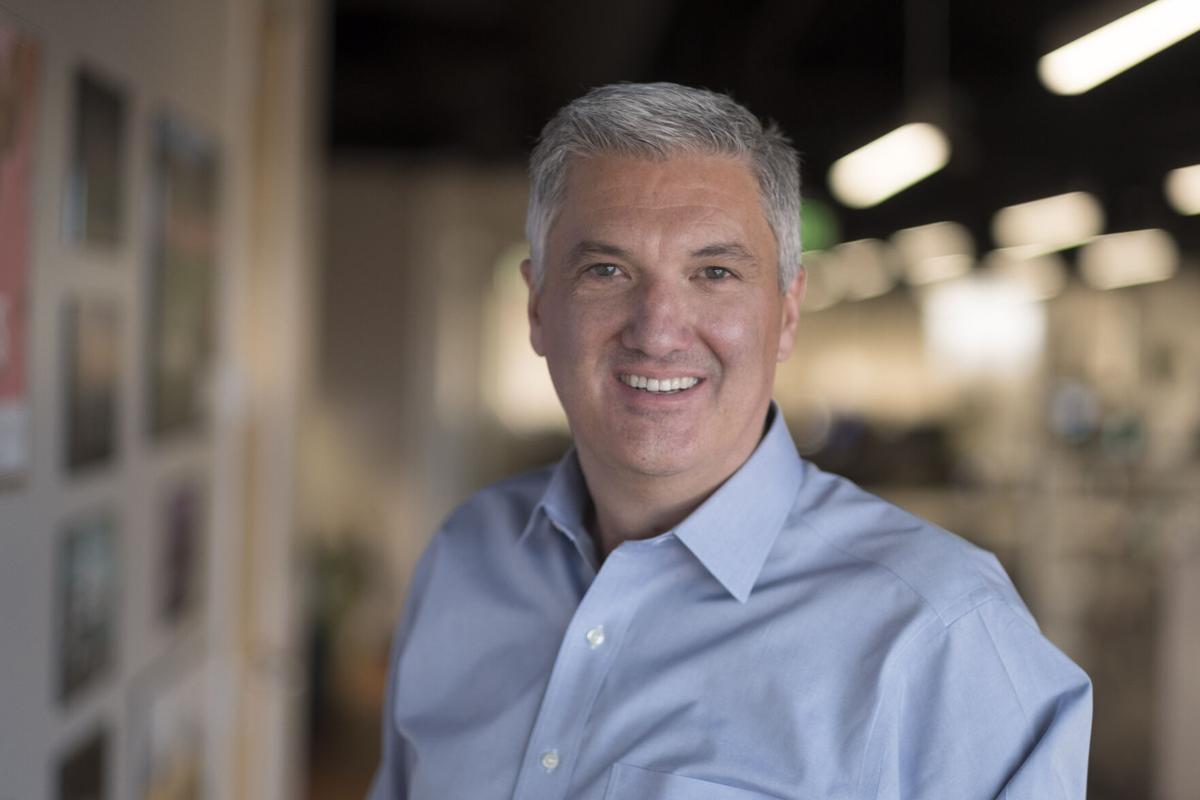George Kliavkoff’s name would not have appeared on a list of 25 possible candidates for the Pac-12 commissioner vacancy.
Or on a list of 50 possible candidates.
Or 100.
His appointment to the post Thursday was both completely surprising and entirely predictable. The Pac-12 presidents never miss a chance to zag when every shred of evidence suggests they should zig.
In this case, zigging meant hiring someone with experience on a college campus or in college football, or both.
In other words, the antithesis of Larry Scott, who arrived 12 years ago from the Women’s Tennis Association (and then proceeded to hire an attorney as his chief football supervisor).
“Coming off a failed experiment,” one industry source said last week, “the Pac-12 cannot follow that up with another experiment.”
Kliavkoff has neither campus experience or football expertise. He’s from the sports and entertainment world, with a background in the media space.
His résumé more closely resembles Scott’s than it does any of the Power 5 Conference commissioners whose tenures are considered successful.
After they finished a Google search for Kliavkoff, fans across the conference had every right to wonder if the presidents could be admitted to the schools they preside over.
That said, nothing in Kliavkoff’s background necessarily precludes him from reinvigorating the Pac-12 immediately and positioning the conference for long-haul success. Because for all the emphasis placed on football success and revenue generation, the Pac-12, first and foremost, must fix its culture.
And you don’t need to know all the CFP expansion scenarios to do that.
The Pac-12 needs trust and honesty and collaboration.
It needs the conference office to be fully committed to serving the campuses, and it needs the campuses to openly accept the help.
It needs a commissioner who listens to every athletic director, who values their opinions, and then makes tough decisions.
“It’s not rocket science,” said an industry source who has known Kliavkoff for years and is familiar with the Pac-12’s inner-working. “But you have to get everybody in the boat together, and then you have to lead.
“George is a smart guy; he has a lot of horsepower, but he’s not going to take an I-know-better-than-you approach.”
So much of Kliavkoff’s success hinges on his ability to get the conference moving together, and he has one major advantage in that regard: A willing audience.
The athletic directors and coaches are desperate to move past the Scott era. They have worried for months that the conference is losing ground — losing more ground — with a lame-duck commissioner in charge and a rapidly-changing landscape underfoot.
The playoffs are about to expand.
The transfer portal is about to get more chaotic.
The players are about to get paid for promotional work (via name, image and likeness).
“Awesome. Let’s get rolling,” one campus source said when told a commissioner had been selected.
Kliavkoff’s first public impression was a good one:
During a media session Thursday following his appointment, he embraced the importance of football, admitted what he didn’t know and spoke candidly about the state of the conference.
“If we’re honest,” he said in response to a question about the Pac-12’s weakness, “it’s the number of years since we’ve won a football or men’s basketball championship.”
If we’re honest.
Candor builds trust. Trust builds relationships. Relationships are essential to leadership. Leadership is what the Pac-12 needs most moving forward.
“I am hopeful,” said another industry source with close ties to the Pac-12. “We need to come from a long way back.”
Kliavkoff has much to learn about the college athletics space but seemingly possesses a helpful trait, one his predecessor lacks: He knows what he doesn’t know.
During the media session, Kliavkoff alluded to the possibility of hiring someone to serve as a liaison to the campuses. During a later interview with the Hotline, he acknowledged the need to hire a consultant to handle the legwork for the media rights negotiations. And he added that if the conference staff is lacking in important areas, he’ll solve that problem by bringing in expertise.
He takes office July 1 and plans to embark on a listening tour of the campus, which is a smart first step but won’t be nearly enough.
No major conference has the sheer diversity of campuses found in the Pac-12 — not only geographically but financially, culturally, politically and academically, from Washington State to USC and Arizona to Stanford. Consensus won’t be easy; in some cases, it will be impossible.
But Kliavkoff dealt with an array of priorities when he developed MLB’s groundbreaking Advanced Media unit and worked directly with the owners.
“They are millionaires and billionaires, and they’re all strong-willed people,” he said. “We were trying to navigate these new digital rights and trying to build consensus.”
The Hotline has been asked repeatedly if the Kliavkoff hire will lead to better days for the Pac-12 or more of the same.
If we’re honest: Sure, there’s reason for skepticism, good reason. But he has a chance to make this work.
He has a chance if he surrounds himself with good people, if he sticks to what he knows, if he builds trust with the campuses, if he accepts reality and criticism, if he works collaboratively and makes informed, sound decisions.
More than anything, this job is about people skills — about getting “everybody in the boat together.” If Kliavkoff gets that piece right, the rest just might fall into place.





